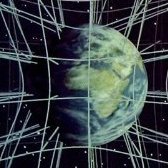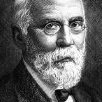Leaderboard
Popular Content
Showing content with the highest reputation on 11/27/22 in all areas
-
https://www.quantamagazine.org/does-time-really-flow-new-clues-come-from-a-century-old-approach-to-math-20200407/ (This is a pull-quote, but I have to warn that reading the full article may be necessary to follow what Gisin is up to. I can't cut/paste everything on this device, sorry.) Over the past year, the Swiss physicist Nicolas Gisin has published four papers that attempt to dispel the fog surrounding time in physics. As Gisin sees it, the problem all along has been mathematical. Gisin argues that time in general and the time we call the present are easily expressed in a century-old mathematical language called “intuitionist mathematics,” which rejects the existence of numbers with infinitely many digits. When intuitionist math is used to describe the evolution of physical systems, it makes clear, according to Gisin, that “time really passes and new information is created.” Moreover, with this formalism, the strict determinism implied by Einstein’s equations gives way to a quantum-like unpredictability. If numbers are finite and limited in their precision, then nature itself is inherently imprecise, and thus unpredictable.3 points
-
In the quantum realm, when you talk to a wall, there is a small but non-zero probability that at least some of what you say gets through to the other side: \[T^{-1} =1+\frac{V_{0}^{2}}{4E( E+V_{0})} sin^{2}\left(\frac{2a}{\hbar }\sqrt{2m( E+V_{0}}\right)\] This thread here, alas, appears to be a purely classical situation.2 points
-
I see QM uncertainty as being a manifestation of the fact that ours maths tries to place properties as concentrate at a point (in the coordinate space concerned) when they are not so concentrated in fact. Alternatively what does it mean to say both "The electron wavefunction has a presence throughout all space" and to say "the electron is also at point x in space "?1 point
-
It may be an example brought to an absurd level, but it illustrates perfectly that QM says there is no reality until an observation/interaction is made. Which side of the wall are you on ? One thing I've always wondered about, and maybe you more learned gentlemen can offer some guidance ... If I produce two entangled particles, and somehow manage to 'steer' them towards each other such that they interact ( only ) with each other, is entanglement lost ?1 point
-
Interesting, but I'm skeptic. Revolutions in physics normally stem from a well-balanced mixture of conservatism (a lot of it) and at most one very bold new statement. Sounds too revolutionary for the likes of me. If professor Gisin gave me a good account of something playing the role of, QP−PQ=iℏ with something other than continuous mathematics, I would pay a lot of attention, if not be immediately won over. It's not that some aspect is better addressed with the new idea. It's the not-so-easy order that everything else stays more or less where it was.1 point
-
Old Westerns. Specifically Sergio Leone 'spaghetty' westerns. ( what were you expecting ? )1 point
-
Act as if it's extremely important that every human on the planet have a good education, one that sets a high value on literacy, critical thinking skills, scientific understanding, ecological awareness and social intelligence. End predatory capitalism and third world debt. And yes, corruption. No nukes, ever. Value having experiences over having material things. Round up fascists and billionaires and make them into a nutritious protein drink. JK on that last one.1 point
-
Science + action? Robocop Total Recall The Hunt For Red October Burn Notice ... and of course the Terminator, Alien, MIB, and BTTF series (of movies)1 point
-
Ending corruption would be up near the top of my list, both the illegal "hard" corruption where appropriate laws exist but bribery, threats and inducements assures no prosecutions and the legal "soft" corruption where undue influence assures appropriate laws are weak or don't exist at all. I suspect that without corruption a lot of problems would be easier, with more resources (money) to use for them. I think we would see more actions taken around issues where vested interests have successfully evaded responsibility and accountability eg global warming would be dealt with more effectively.1 point
-
1 point
-
Measure theory and fractals are not involved in the proof of Banach-Tarski. It's true that the pieces of the decomposition are nonmeasurable, but the existence of nonmeasurable sets is not difficult to prove without invoking any measure theory beyond the definition of a measure. At the very least, one need not study or look up measure theory in order to follow the proof of Banach-Tarski. Fractals don't enter into it at all AFAIK. The Vsauce video on Banach-Tarski is very good, as is the Wikipedia page on the subject. In particular, the proof outline on Wikipedia is straightforward, and not all that difficult to follow, if one is willing to patiently work through it. The proof has a lot of moving parts, but each part is relatively simple. The essence of the proof is that there's a paradoxical decomposition of the free group on two letters. This does not involve the axiom of choice or nonmeasurable sets. I can't find a clean, elementary discussion of this online and it's a bit lengthy but perhaps I can write something about it later. There's a brief description here. https://en.wikipedia.org/wiki/Paradoxical_set The bottom line is that Banach-Tarski is a theorem that does not contradict any other mathematics. Vsauce vid: https://www.youtube.com/watch?v=s86-Z-CbaHA https://en.wikipedia.org/wiki/Free_group ps -- I see that Step 1 of the proof sketch on Wikipedia has a pretty decent explanation of the paradoxical decomposition of the free group on two letters. https://en.wikipedia.org/wiki/Banach–Tarski_paradox#Step_1 Once that's established, the next step is to show that the group of rigid motions of Euclidean 3-space contains a copy of the free group on two letters, and therefore has a paradoxical decomposition. After that, it's just a technical matter of applying this decomposition to the unit ball in 3-space.1 point
-
No I cannot think of any other example of non-locality. As far as I know, no other effects require that the outcome of an event at a specific point is determined explicitly on what happens at another point, unless there is a transfer of information. And relativity explicitly states that information is constrained to transfer at speeds not exceeding c . So non-locality is not just unproven yet, it is actually not needed; not even for entanglement.1 point
-
I take it you have been fortunate enough never to need either. Congratulations.1 point
-
Sometimes people get psychology, which remains a mix of art and science, confused with neuroscience, which is more the scientific approach. Seems like there are branches that are closer to neuroscience, like psychopharmacology, where they draw on disciplines like biochemistry, genetics, etc. Other branches, like Jungian analysis, tend more towards an intuitive art of observing a human psyche. There are interdisciplinary categories like behavioral science or cognitive science which, as their names imply, lean more towards the array of techniques called "the scientific method." There's a fairly wide spectrum in how all these branches work, with counselors whose primary tool is empathy at one end, and neuroscientists whose primary tools are technology, clinical studies, and rigorous data sifting, at the other.1 point
-
I wouldn't characterize psychometrics as the staple of psychology; I would rather call it a branch. Psychology was not born as a science; it's more a convergence of medicine (as medicine grew and became more sophisticated and compartmentalized in the 20th century) and ministry (spiritual guidance, usually provided to a community by its shaman or religious guardian). People have always suffered from disturbances of the mind, but these were not always considered medical conditions. They are insubstantial - no boil to lance, no rotten tooth to yank; no fever, shooting pains or vomiting; no spots or rashes or lumps to examine. They manifest in ordinary behaviours in what is considered inappropriate situations - except what is considered appropriate and inappropriate varies by culture and situation. It manifests in moods and feelings that are normal in some situations, in some degree and duration, but are considered abnormal in excess - except that the assessment of excess is also cultural and situational. It manifests in distress felt only by the patient, but judged by other people, who cannot see, touch or feel it themselves. Consider the range of intelligence, sensitivity, temperament and resilience of human beings. Project that onto a big white wall. Superimpose the range of normal emotions, reactions and ideation of which beings are capable. Superimpose the range of philosophies and attitudes of societies to what is considered 'normal'. Superimpose the range of parenting style, influences, expectations and circumstances of childhood. Superimpose the list off the 'aberrant' behaviours people display. Superimpose the symptoms of exposure to chemicals in food, the environment, therapeutic and recreational substances. In front of that great big busy wall, put one young man who says: "Help me. I'm afraid to go to sleep." Where do you start? Trying to address that kind of dis-ease, to classify, codify, diagnose, trace to its cause and alleviate it is never going to be a slide-rule kind of problem.1 point
-
Welcome to the club with the most prominent "professors" of psychology..1 point
-
I don't know much about measures and fractals. The sphere is constructed by labelling each point on the sphere and doing a shift operation to the points .0 points










